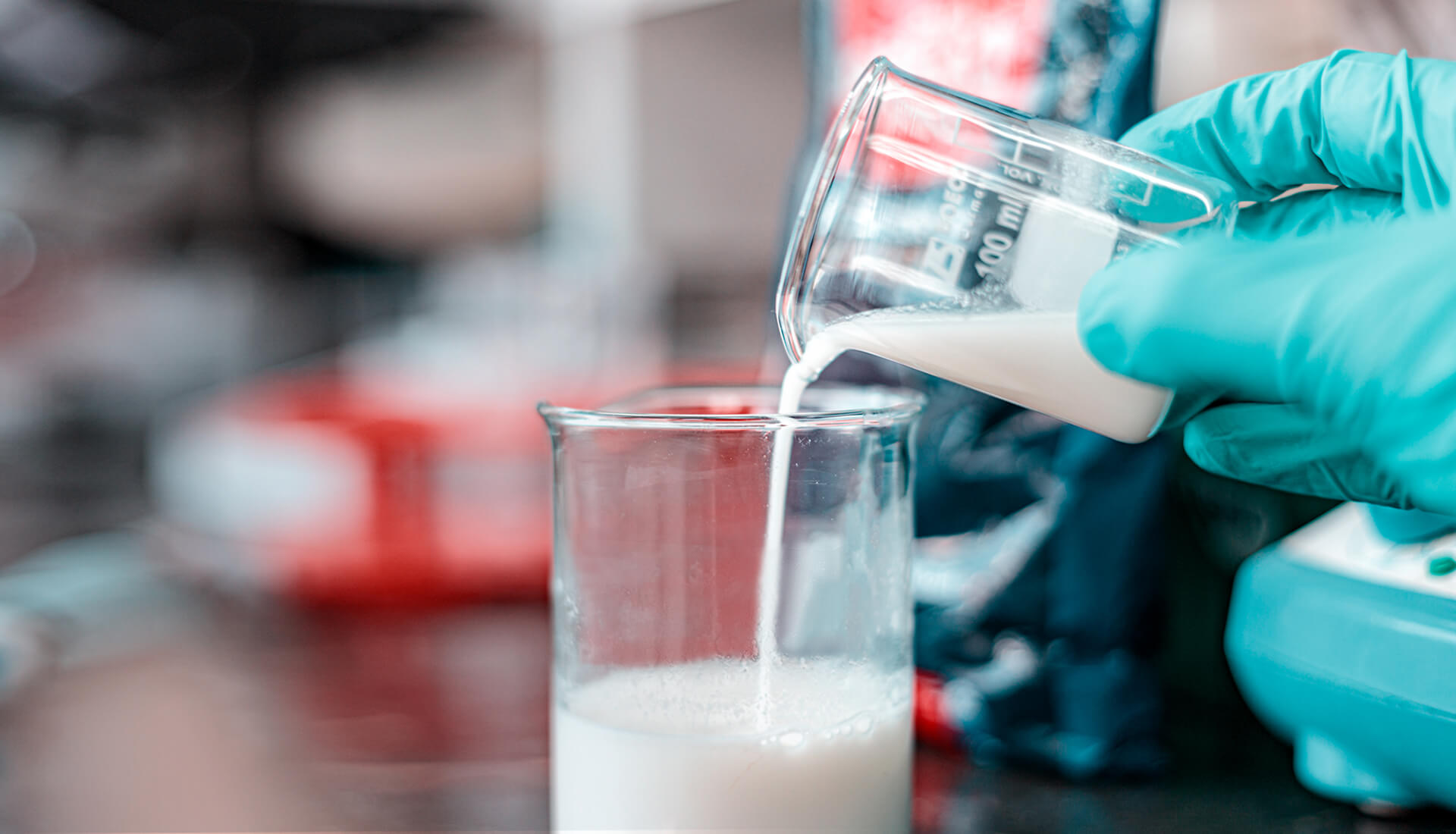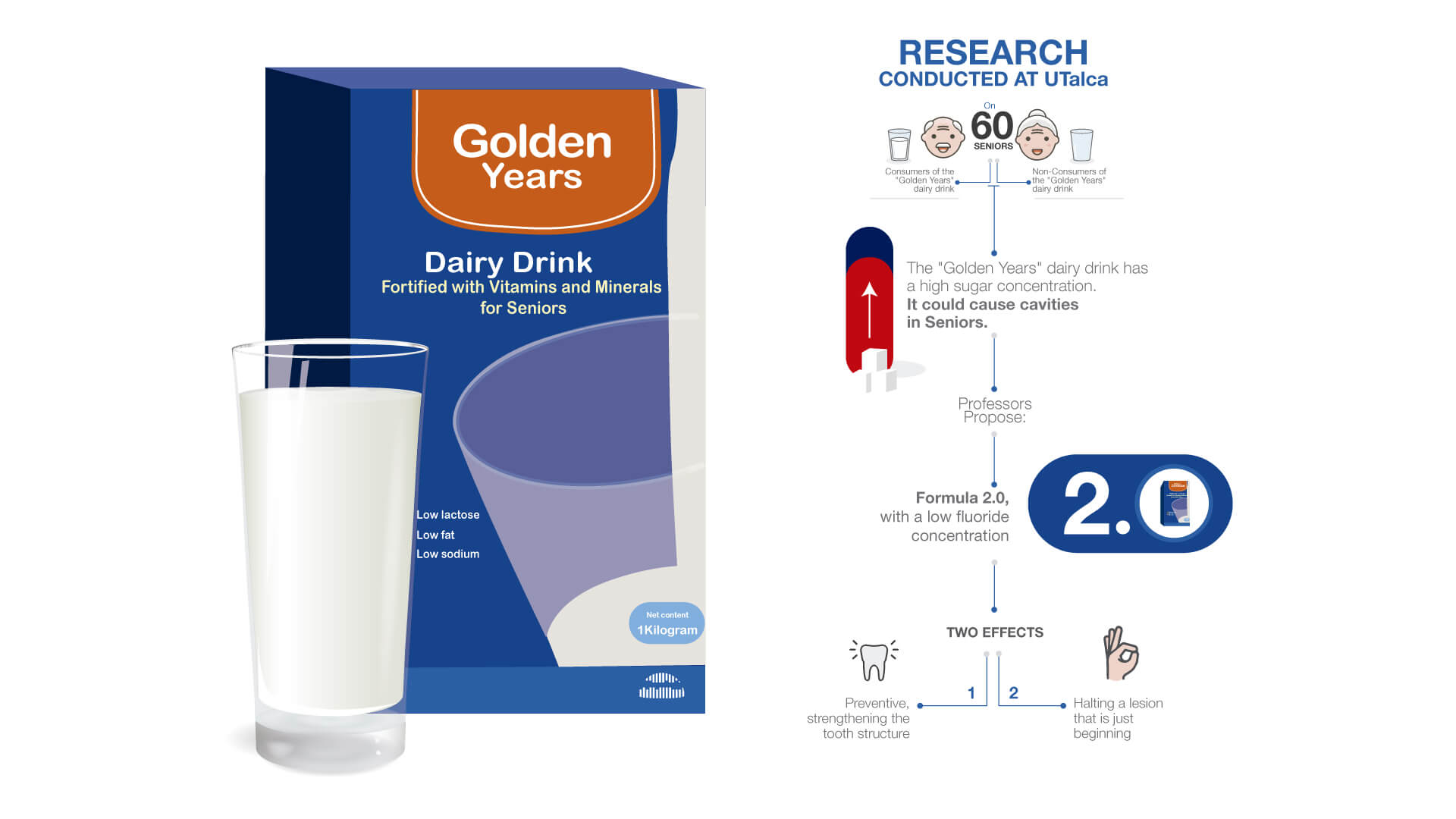Cargando 0%
Cargando 0%
A study conducted by professors of the Department of Dentistry shows evidence that the high concentration of sugar in the product, distributed by the Ministry of Health in public health care facilities, causes damage to the oral health of those who consume it. As a result, work is being done on a proposal to reformulate the supplement to make it healthier.
26 Agosto 2019
Research by professors at the University of Talca showed that a dairy drink provided to seniors in public health care facilities across the country would be risky to the oral health of those who consume the product, due to the high concentration of sugar in its formula.
The study, which was published this year in the most relevant journal worldwide on this subject, Caries Research, was based on research of the powdered milk brand “Golden Years”, a dairy drink that is provided through the Complementary Food Program for Senior Citizens (Pacam by its acronym in Spanish).
Rodrigo Giacaman, Professor and Director of the Department of Oral and Maxillofacial Rehabilitation at the University, explained that the senior population in Chile has been growing and this requires responding to new epidemiological challenges in the Chileans’ oral health. “While there are many fully edentulous patients, the number of older adults who have teeth has been significantly growing and, when this occurs, there is an increased risk of having the most typical mouth disorders, which are tooth decay and periodontal disease,” he said.
In this context, a group of researchers from the University wondered whether this product provided by the Ministry of Health in public health care facilities, and which contains a high sugar concentration, poses a risk to people’s health.
Thus, in 2016, professors from the UTalca School of Dentistry conducted an epidemiological study with seniors who consumed the dairy drink and those who did not ingest it. “The research revealed that people who consume the product have an increased risk of coronal cavities and root decay (injury at the root of the tooth), therefore, there is an evident association between these two types of caries,” stressed Ramiro Castro, the professor who led the study under the framework of his doctoral dissertation.
“It is evident that the composition of this nutritional supplement has a high sugar level. Because of this, it could potentially pose a risk to the population in terms of making them more prone to tooth decay,” Giacaman said.
The second step of the study consisted in experimenting at the University’s Laboratory of Cariology. In this case, blocks of dental roots were modeled, they were then covered with bacteria and twice a day they were administered the Golden Years dairy drink. At the same time, the same method was used, administering other types of components: water with sugar, whole milk, skim milk, and water in its natural state. After five days of experiments, the bacteria were isolated from the blocks, which resulted in carious lesions forming in the dental roots.

Food supplement 2.0
A second research, which has not yet been published, where the professors propose an alternative to improve the dairy drink and which would be achieved by adding low concentrations of fluoride to its formula.
“It is important to remember that Chile was a pioneer in implementing milk fluoridation in school programs and the results have been positive, that is, it decreases the occurrence of cavities. Consequently, fluoride in low concentrations for senior citizens does not produce any damage, it produces a good effect. In addition, this chemical element is cheap, so in terms of cost it is advantageous,” Castro said.
This was tested on subjects in two 15-day phases, and, indeed, according to the researchers, there is less cariogenicity, which means that fluoride causes two effects: preventive, strengthening the tooth structure; or decreasing and halting a lesion that is just beginning.
Based on these series of studies, today the professors are currently discussing with the Ministry of Health and the Institute of Nutrition and Food Technology (INTA by its acronym in Spanish) of the University of Chile the preparation of a formal proposal to these institutions for the reformulation of the product.
Castro’s idea is that this product, which is provided free of charge in public health care facilities, “will be even better. That is the next step and it has already been shown that it works with fluoride. You can have a 2.0 food supplement that will be of better quality and will continue to contribute to enhancing life of seniors,” said the Professor.
Image gallery